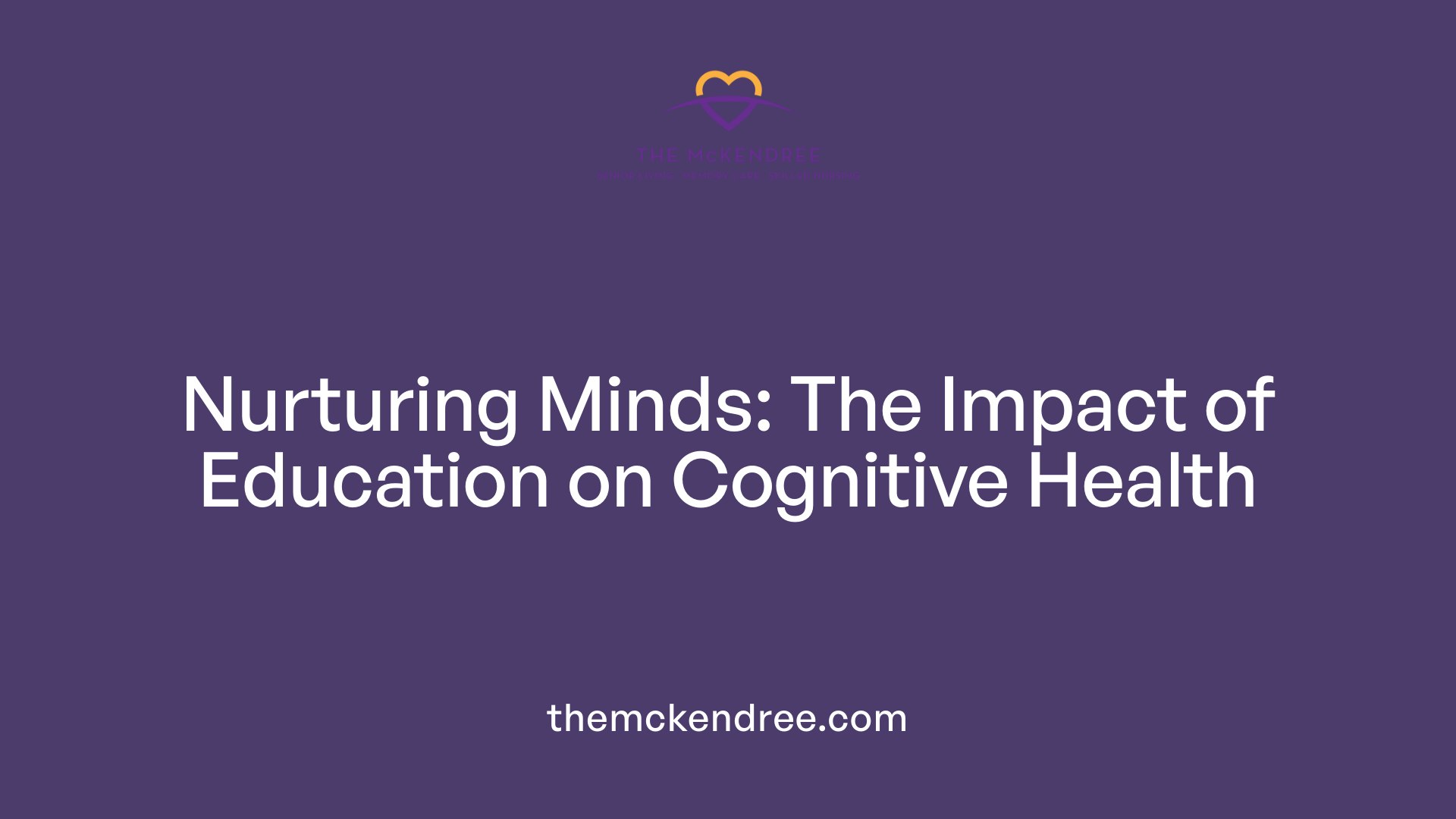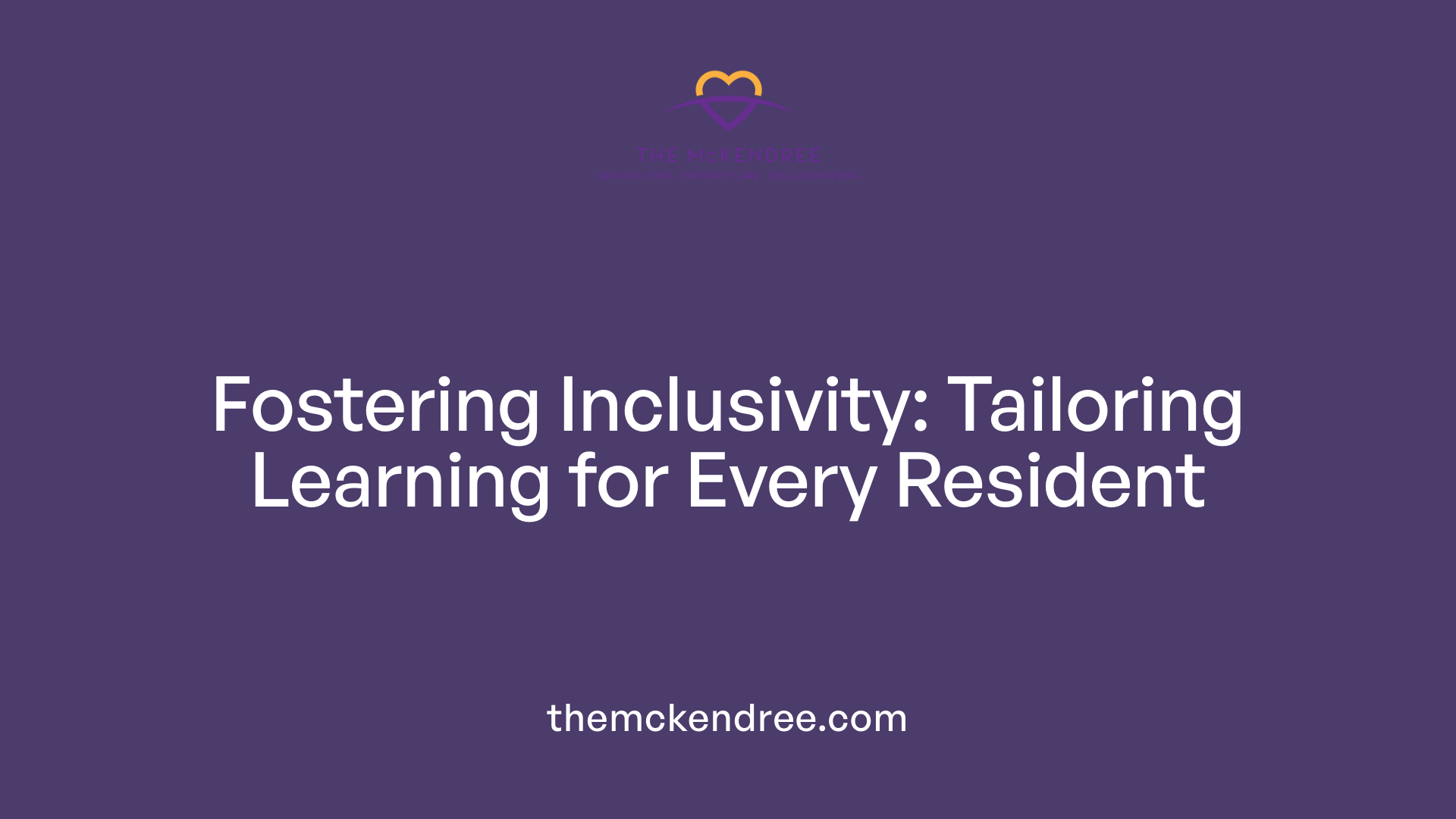How Assisted Living Encourages Lifelong Learning and Hobbies

Introduction
Lifelong learning is a cornerstone of enriched living in assisted living communities. These environments are dedicated not only to ensuring safety and health but also to encouraging continuous personal growth and learning. By offering diverse programs, they empower seniors to explore new interests, enhance cognitive function, and foster social connections, ultimately leading to a higher quality of life.
A Hub for Lifelong Learning Opportunities

How does assisted living support lifelong learning and hobbies?
Assisted living communities support lifelong learning and hobbies by offering a wide range of educational programs that promote mental stimulation and emotional fulfillment. These programs include art classes, language learning, and workshops that encourage social engagement among residents, helping to reduce feelings of isolation.
By providing opportunities for cognitive challenges, such as guest lectures and digital literacy classes, residents can enhance their knowledge and skills while building self-confidence. Creative workshops and group activities further foster connections, enriching the lives of residents and encouraging personal growth and exploration of new interests.
Promoting cognitive health through learning
Learning activities not only combat boredom but also serve as essential tools for preserving cognitive function. Engaging in mentally stimulating activities, such as book clubs or collaborative projects, has been linked to improving memory retention and delaying cognitive decline.
Moreover, social interactions gained through these programs help mitigate loneliness, boosting emotional well-being. This holistic approach to lifelong learning contributes significantly to seniors’ overall quality of life, ensuring they remain active, engaged, and fulfilled as they navigate their golden years.
The Mental Health Benefits of Lifelong Learning

What benefits do lifelong learning programs bring to residents' mental health and overall happiness?
Lifelong learning programs in assisted living communities significantly impact residents' mental health and overall happiness. Engaging in these educational endeavors keeps the brain active, which is vital for preventing cognitive decline. Studies show that acquiring new skills strengthens neural pathways, enhancing memory retention and cognitive function, crucial for maintaining mental sharpness as we age.
Moreover, these programs impart a sense of purpose and fulfillment to residents. Pursuing knowledge for personal interest rather than career advancement fosters greater satisfaction and peace, enhancing emotional well-being. Residents participating in these programs often find joy in mastering new skills or completing projects, which can lead to boosted self-esteem and happiness.
Additionally, lifelong learning opportunities promote social connections, which are essential for alleviating loneliness and isolation—two common challenges seniors face. By interacting with peers, residents form friendships and support networks that contribute positively to their mental health. Ultimately, engaging in lifelong learning is correlated with decreased levels of depression and anxiety, paving the way for improved emotional health and a more joyful life experience.
Diverse Educational Programs in Assisted Living

What educational programs and workshops are typically offered in assisted living facilities?
Assisted living communities offer a rich variety of educational programs and workshops tailored to the interests and needs of residents. These programs foster intellectual growth and social interaction, which are vital for maintaining cognitive health and emotional well-being.
Some common educational offerings include:
- Art Classes: These encourage creativity and self-expression, providing a therapeutic outlet for emotions.
- Language Learning: This challenges the mind and can be a fun way to connect with others.
- Book Clubs: Facilitating discussions around literature enhances comprehension and social engagement.
- Technology Workshops: These help residents become proficient in using smartphones and computers, bridging the digital divide.
- Health Seminars: Educational talks on wellness, nutrition, and exercise contribute to overall health maintenance.
- Mindfulness and Stress Reduction Workshops: These are essential in promoting mental wellness among seniors.
Various programs encourage personal growth while also helping residents build connections and reduce feelings of isolation, making assisted living a vibrant community where learning and socialization go hand in hand.
How do these programs contribute to skill and knowledge building?
Lifelong learning programs in assisted living not only enhance knowledge but also build essential skills. For instance, hands-on workshops in cooking or gardening teach practical skills while fostering a sense of accomplishment.
Moreover, residents gain:
- Cognitive Benefits: Engaging in stimulating activities assists in keeping their minds sharp, delaying cognitive decline.
- Social Connections: Group learning environments build camaraderie and friendships, reducing loneliness.
- Self-Confidence: Mastering new skills generates a sense of achievement and purpose in life.
These educational and skill-building opportunities create a nurturing environment where seniors can thrive, experience joy, and enjoy enriched lives.
Cognitive and Emotional Health Through Education

How do ongoing education and personal growth opportunities impact seniors' cognitive health and emotional well-being?
Ongoing education and personal growth opportunities significantly enhance seniors' cognitive health and emotional well-being. Engaging in lifelong learning stimulates the brain, fostering new neural pathways that can help delay cognitive decline and improve memory.
Research indicates that participating in intellectual activities, such as book clubs and workshops, can keep the mind active and engaged, which is crucial for maintaining cognitive capabilities. This mental stimulation is linked with a reduced risk of developing conditions like dementia and Alzheimer's disease.
Moreover, these learning experiences promote social interaction, which combats feelings of isolation and loneliness—key contributors to poor mental health. Seniors involved in educational programs consistently report higher life satisfaction and a greater sense of purpose. They also experience increased self-esteem as they acquire new skills or revisit past interests.
Overall, continuous learning not only protects cognitive function but also enriches emotional health, contributing to a more fulfilling and engaged life.
Engagement Strategies for Seniors in Assisted Living
What are the strategies used in assisted living environments to engage older adults?
Assisted living environments utilize a diverse array of strategies to stimulate engagement among older adults, aiming to combat loneliness and social isolation.
Social Activities: Activities such as gardening, music and dance events, art classes, and game nights promote interaction and enhance residents' mental and physical health. These events encourage camaraderie and provide avenues for residents to socialize in a fun and relaxed setting.
Group Exercise Classes: Physical fitness is crucial for seniors, and group exercise not only enhances their strength and mobility but also fosters connections among residents, encouraging a sense of community and shared goals.
Volunteer Programs: Opportunities to volunteer allow seniors to remain active and engaged while contributing positively to the community. These programs enhance feelings of purpose and accomplishment.
Educational Opportunities: Lifelong learning programs, including lectures, workshops, and classes in various subjects, enable residents to keep their minds active while exploring new interests.
Overall, these strategies focus on a holistic approach encompassing physical, cognitive, and social stimulation, significantly improving the quality of life for older adults in assisted living.
Exploring Personal Growth and New Hobbies
Types of Activities that Promote Personal Growth Among Seniors
Lifelong learning programs in assisted living communities contribute significantly to personal growth through a variety of engaging activities. Examples include:
- Art Classes: Encourage creativity and self-expression, which are beneficial for emotional health.
- Language Learning: Stimulates cognitive function, allowing residents to connect with new cultures.
- Book Clubs: Enhance critical thinking and expose seniors to diverse ideas, fostering deep discussions and friendships.
- Workshops on Technology: Help seniors become more digitally savvy, bridging the technology gap and offering them new tools for engagement.
Discovering New Hobbies and Passions in Senior Living Communities
Assisted living environments provide a vibrant platform for residents to explore new hobbies and rekindle past interests. Through activities like cooking classes, gardening, or photography workshops, seniors can discover passions that bring joy and fulfillment.
Engaging in these activities not only enhances their quality of life but also reinforces social connections as they share in the learning experience. This community aspect—building friendships and reducing isolation—plays a crucial role in improving overall well-being.
How Do Lifelong Learning Programs Enhance Quality of Life for Residents in Assisted Living?
Lifelong learning programs greatly enhance the quality of life for residents by providing opportunities for intellectual stimulation and social engagement. As seniors participate in activities like art classes or book clubs, they experience enhanced cognitive engagement, reduced feelings of loneliness, and a greater sense of accomplishment. Overall, these programs foster personal growth, ensure social interaction, and contribute significantly to the emotional and mental well-being of residents.
A Culture of Continuous Learning and Social Interaction
Opportunities for Social Interaction and Personal Growth in Senior Living Communities
Lifelong learning programs in assisted living communities promote essential opportunities for social interaction among residents. Residents participate in a variety of engaging activities, from art classes and book clubs to technology workshops. This helps them build friendships, foster camaraderie, and reduce feelings of isolation, which enhances their emotional well-being. During group activities, residents share experiences and knowledge, enriching the community and creating a profound sense of belonging.
Impact of Lifelong Learning and Hobbies on Cognitive Health and Emotional Well-Being
Engaging in lifelong learning positively affects cognitive health by stimulating the brain and helping delay cognitive decline. Residents involved in activities like cooking classes or gardening find pleasure in mastering new skills, which strengthens their sense of self-worth and overall happiness. Studies show that continuing to learn can improve memory retention and enhance one's capacity for problem-solving—essential for maintaining cognitive abilities as one ages.
Importance of Social, Physical, and Educational Programs in Maintaining Senior Well-Being
Senior living communities often provide diverse programs that combine social, physical, and educational elements. Mindfulness workshops and fitness classes promote both mental and physical wellness, while educational seminars enhance residents' knowledge. These multifaceted programs ensure that residents can maintain an active lifestyle, contributing to overall life satisfaction and enhancing their mental health. The result is a rich, vibrant community where continuous learning is celebrated, allowing seniors to thrive well into their golden years.
Creating an Inclusive Learning Environment

Interactive Learning Opportunities
Creating an engaging atmosphere in assisted living communities requires offering interactive learning opportunities. Activities such as group discussions, art classes, and technology workshops can stimulate interest and participation. Programs tailored for exploration, such as cooking classes or book clubs, encourage teamwork and creativity, enhancing social connections among residents.
Adapting Learning for Various Needs
It is essential to adapt these learning opportunities to meet diverse needs. For instance, classes on digital literacy can bridge gaps in technology use, while arts and crafts can be modified to cater to various skill levels. Flexibility in programming ensures that all residents can participate and gain new skills, fostering an inclusive environment.
Creating Supportive Environments for Senior Learning
A supportive learning environment enhances engagement and comfort. This includes providing adequate lighting for reading, comfortable seating arrangements for workshops, and minimizing distractions to maximize focus. By ensuring that the learning environment is conducive to participation, assisted living communities can help seniors thrive in their lifelong learning pursuits.
Conclusion
In sum, assisted living communities are proving to be vibrant hubs for lifelong learning and personal growth. Through a diverse array of programs, ranging from educational workshops to physical activities and creative outlets, these communities offer seniors the chance to continue exploring and developing their skills. Such activities foster a sense of community and belonging, improve cognitive function, and significantly enhance the mental health and overall happiness of the residents. As the global population ages, the importance of supporting ongoing education and hobby exploration in assisted living facilities becomes increasingly vital to ensuring a fulfilling and high-quality life for seniors.
References
- How Lifelong Learning Programs In Assisted Living Communities ...
- The Benefits of Lifelong Learning and How Assisted Living ...
- Senior Living Communities in Promoting Lifelong Learning
- New Year, New Skills: Lifelong Learning Opportunities in Senior Living
- 7 Ways to Embrace a Lifelong Learning - Presbyterian Senior Living
- The Importance of Lifelong Learning Opportunities for Seniors
- How Assisted Living Communities Encourage Volunteerism Among ...
- Assisted Living Promotes Independence | Senior Care | Midwest
- How Independent Living Supports Lifelong Learning
- 5 Benefits of Adult Learning in Senior Living Environments









































.jpg)








.jpg)





.jpg)
.jpg)
.jpg)
.jpg)
.jpg)
.jpg)
.jpg)
.jpg)



.jpg)

.jpg)
.jpg)
.jpg)
.jpg)


.jpg)
.jpg)
.jpg)
.jpg)

.jpg)
.jpg)
.jpg)


.jpg)
.jpg)










.jpg)